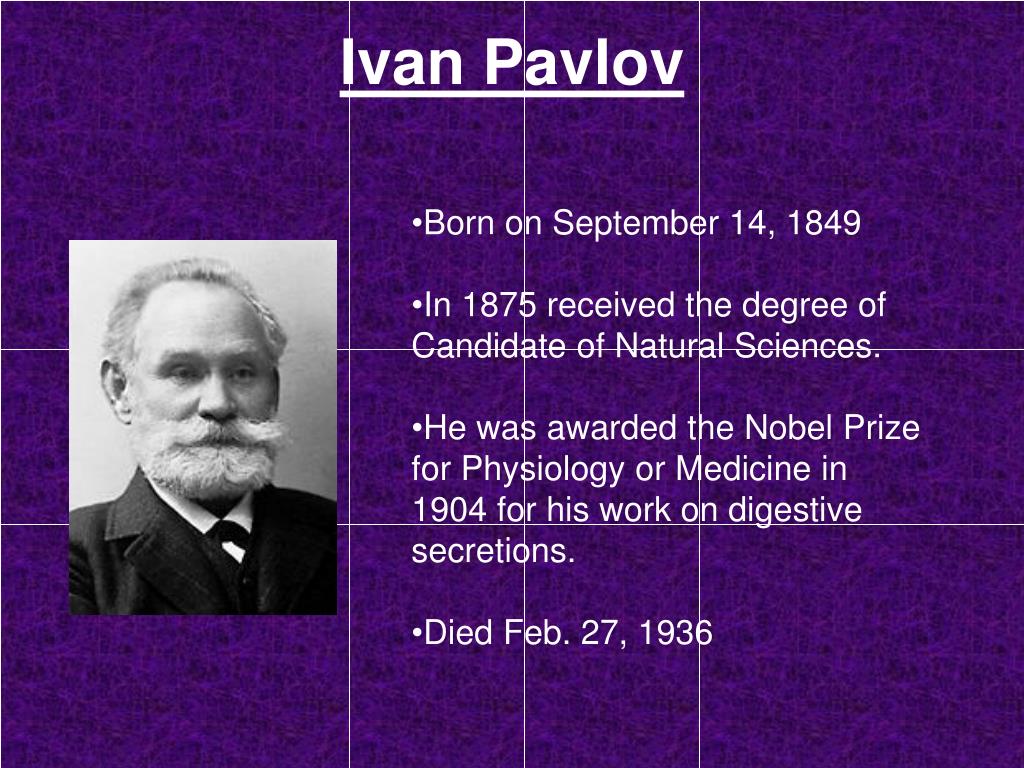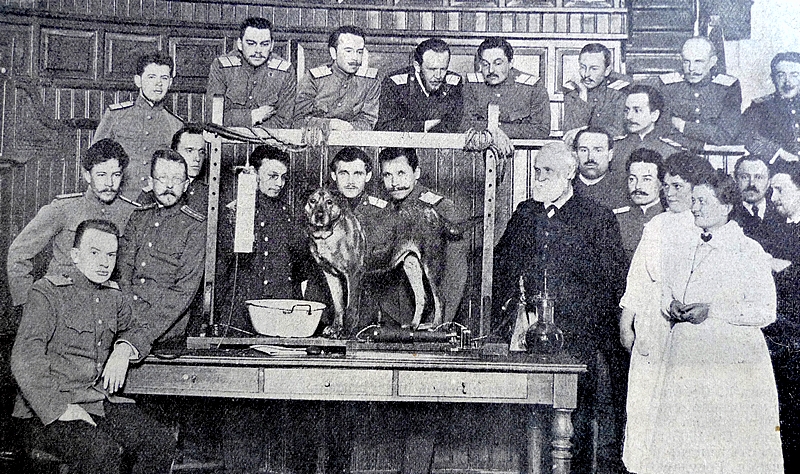

The bell had now become a conditioned stimulus to the dogs. Similar to the last experiment the dogs learned to associate the bell ringing to getting fed, leading them to believe every time the bell rings they will get fed. After doing this same procedure continuously when he rang the bell with no food present the dogs still salivated. Explanation: He believed that he clearly established the physiological nature of psychological phenomena. Advertisement Advertisement sawyerw174 sawyerw174 Answer: Circulation, digestion, and conditioned reflexes. While researching the digestive function of dogs, he noted his subjects would salivate before the delivery of food. He helped found the Department of Physiology at the Institute of Experimental Medicine and continued to oversee the program for the next 45 years. Every time he fed the dogs he rang a bell. Ivan Pavlov pioneered the study of circulation, digestion, and conditioned reflexes. Pavlovs primary interests were the study of physiology and natural sciences. In a similar experiment Pavlov used a bell as a neutral stimulus and food as the unconditioned stimulus once more. In one study, Pavlov sought out to study the salivation in dogs to learn. As a result, learning changed the behavior of the animals.Īfter making that scientific discovery Pavlov dedicated himself to study that type of learning. Ivan Pavlov pioneered the study of classical conditioning and conditioned reflexes. The salivary response to the presentation of food is an unconditioned reflex, salivating to the expectation of food is a conditioned reflex. Pavlovs Career Pavlovs primary interests were the study of physiology and natural sciences. In 1886 he returned to Russia but could not find a position until 1890 when he was appointed to the role of professor of Pharmacology at the Military Medical Academy. In 1870, he began studying the natural sciences at St. After completing his doctorate, Pavlov spent two years in Germany studying digestion in dogs. For example, the assistants whom the animals learned usually walked in with food they were the neutral stimulus. In 1883, he earned his doctorate with his thesis, The centrifugal nerves of the heart. Anything the dogs learned to associate with food triggered the same response. Pavlov discovered that the salivary response was a learned response. However, when he noticed that his dogs would begin to salivate whenever he entered the room, even when he was not bringing them food, that is when he realized the salivary response was not due to an automatic physiological process. Meaning dogs don’t learn to salivate whenever they see food, it’s a stimulus-response connection that they don’t need to learn, an unconditioned reflex. Pavlov noted salivation was a reflexive process that occurs automatically under stimulus not under consciousness. Throughout his research Pavlov and his assistants would present food to the dogs and measured the saliva that was produced as a result. system of dogs, known today for his work on conditioning a form of.

By doing so he noticed how the dogs began to salivate as soon as one of his assistants entered the room. Ivan Pavlov, a Russian physiologist won a Nobel Prize for his work on the digestive. Pavlov discovered the concept of classical conditioning while studying the digestion in dogs.

He also introduced many conditioning terms, including Conditioned Response, Unconditioned Response, Conditioned Stimulus, Unconditioned Stimulus, and more.Ivan Pavlov was a Russian physiologist which is a bit ironic due to the fact that he was a major influence in the field of psychology specifically in Behaviorism. Pavlov’s work lay the foundation for Behaviorism, which dominated the field of psychology from the 19th century until the first half of the 20th century. Salivation in response to the ringing of the bell is known as a Conditioned Response. He did this by ringing a bell as he presented food, at which the dogs would respond by salivating.Īfter several trials of the bell and food presented together, Pavlov rang the bell alone without presenting food and the dogs gave the usual salivary response. In that experiment, he conditioning dogs to salivate in response to the sound of a bell. He later tested the concept using what became his most famous experiment. Pavlov originally discovered the idea of conditioning by accident – he noticed that dogs began to salivate even before they were presented with food. This required keeping them alive and healthy to conduct chronic experiments, as he called them. Pavlov was interested in observing their long-term physiological processes. From his work studying digestion in dogs, he observed that the dogs would salivate at the mere sight of food. Ivan Pavlov in 1890 Pavlov's laboratory housed a full-scale kennel for the experimental canines. As we learn, we alter the way we perceive our. Ivan Pavlov (1849 – 1936) is best known for his work describing the psychological phenomenon of Classical Conditioning. The first of these, Ivan Pavlov, is known for his work on one important type of learning, classical conditioning.


 0 kommentar(er)
0 kommentar(er)
